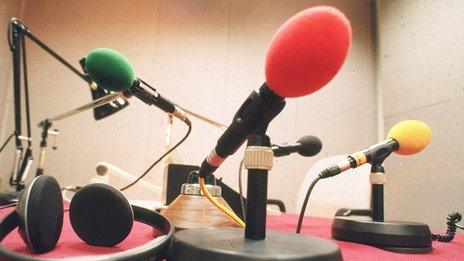Ulster-Scots 'forgotten in some ways'
- Published
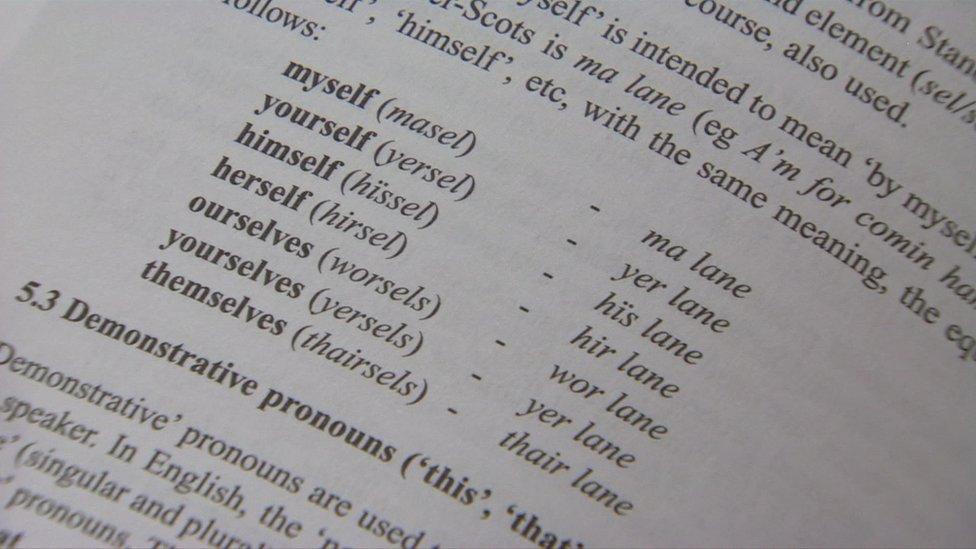
According to the 2011 census, just over 140,000 people in Northern Ireland claim some knowledge of Ulster-Scots
Ulster-Scots is a language which has been part of life here since the first Scots planters arrived in Ulster in the 17th Century.
But more than 400 years on, it has become a sticking point in the Stormont talks.
In response to demands for an Irish language act, the Democratic Unionist party is understood to want more formal protection for Ulster-Scots too.
But what form would that take and what do Ulster-Scots speakers want?
According to the 2011 census, 8% of Northern Ireland's population claim some knowledge of Ulster-Scots - just over 140,000 people.
That included 13% of Protestants and 3% of Catholics.
Just over 10% of people - more than 179,000 - claimed to have some knowledge of Irish.
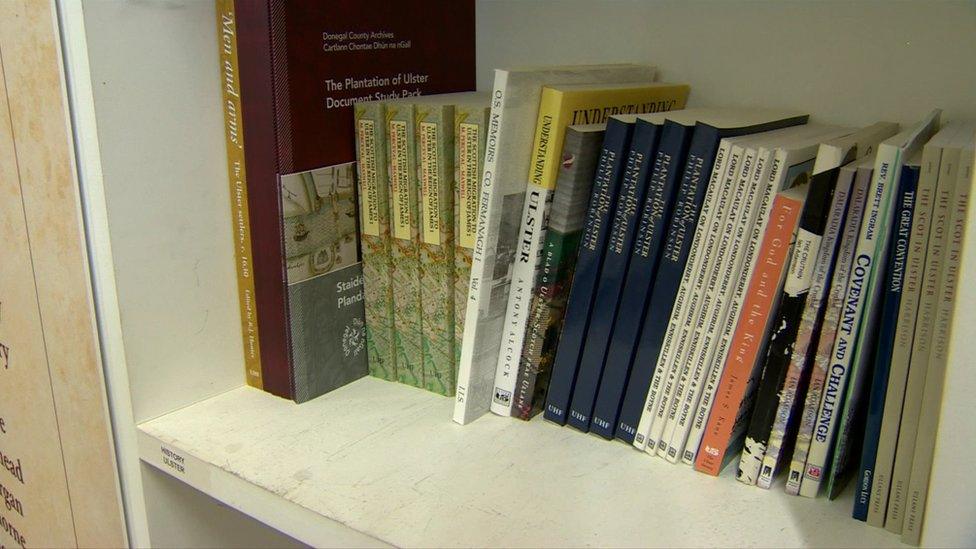
Ulster-Scots has been here since the first Scots planters arrived in Ulster in the 17th Century
The former Department of Culture, Arts and Leisure published proposals for an Irish language act in 2015.
However, in the same year the department published a strategy to enhance and develop the Ulster-Scots language, heritage and culture up until the year 2035.
Although a strategy is not legislation, that document gives some pointers about what form any enhanced status for Ulster-Scots may mean.
It included these proposals:
More teaching of Ulster-Scots language and culture including the development of GCSEs and A-levels
More public visibility for the language like Ulster-Scots street signs in some areas
More TV and radio programmes in Ulster-Scots
Those were all important for Ulster-Scots enthusiasts at the Ullans centre in Ballymoney, County Antrim - a hub for the Ulster-Scots language, music, dance and history.
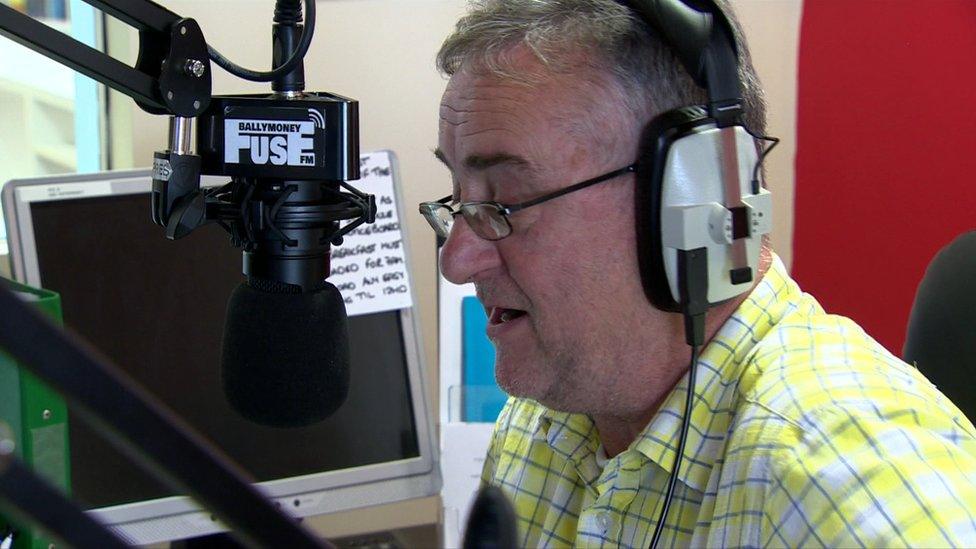
Fuse FM is a dedicated Ulster-Scots radio station
But more money is also a big issue, according to Louise Morrow who teaches classes in Ulster-Scots.
"Equality of funding is a big thing for me," she said.
"The Irish language does get more funding and is more recognised than the Ulster-Scots language.
"We would also like to see more Ulster-Scots townland names being recognised.
"Ulster-Scots is forgotten about in some ways I feel."
'Wee bit of respect'
For fellow volunteer Johnny Crawford, more education is vital.
"We'd like to see more provision in schools and more curriculum-based Ulster-Scots," he said.
"It's also mostly primary school driven, as there isn't a lot of resources for post-primary pupils."
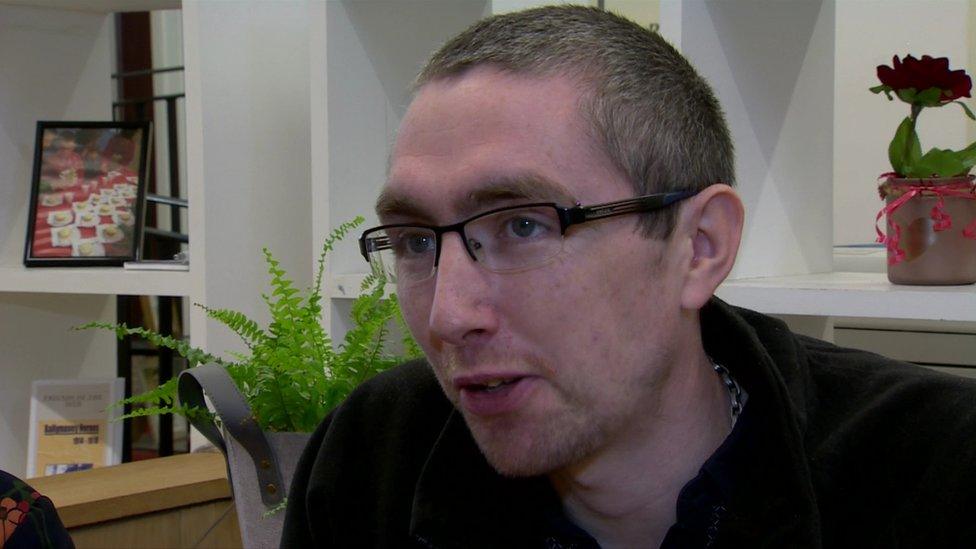
Johnny Crawford teaches Ulster-Scots
The Ullans centre is also home to Northern Ireland's only dedicated Ulster-Scots radio station, Fuse FM.
One of its presenters, Liam Logan, says any legislation or strategy to protect and promote Ulster-Scots can be introduced gradually.
"At the bottom of it is that notion of education, so people have an idea of their Ulster-Scots linguistic heritage," he said.
"And a wee bit of respect that says just because you speak in an Ulster-Scots way, it doesn't mean you're stupid."
So while the talking goes on at Stormont - and like their counterparts who speak Irish - Ulster-Scots enthusiasts say they want action and not just words.
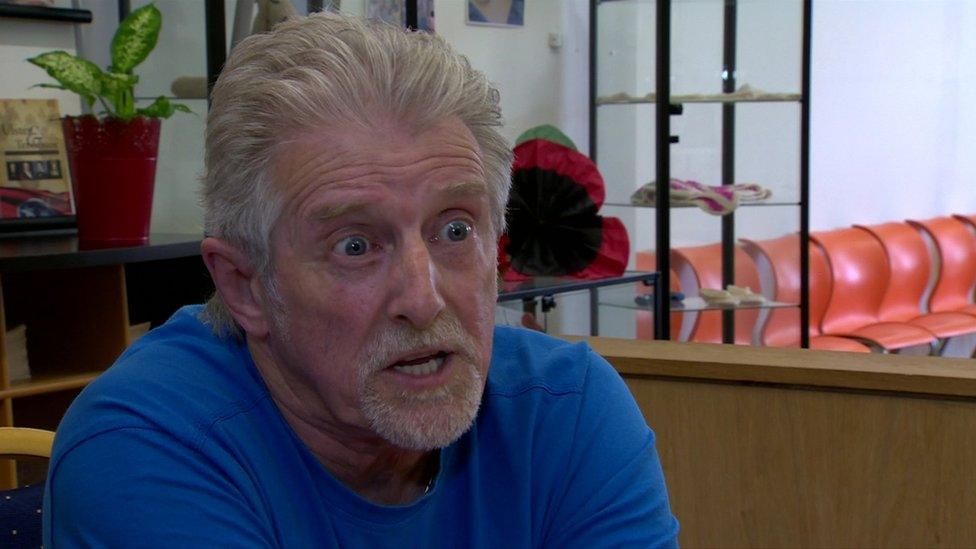
Jack Kyle is a fluent Ulster-Scots speaker
And according to fluent Ulster-Scots speaker Jack Kyle, from Ballymoney, the stakes are high.
"I was born here, my father was born here and my mum and my grandparents," he said.
"People around here still speak Ulster-Scots like they did.
"We just don't want to see it dying out."
- Published28 June 2017
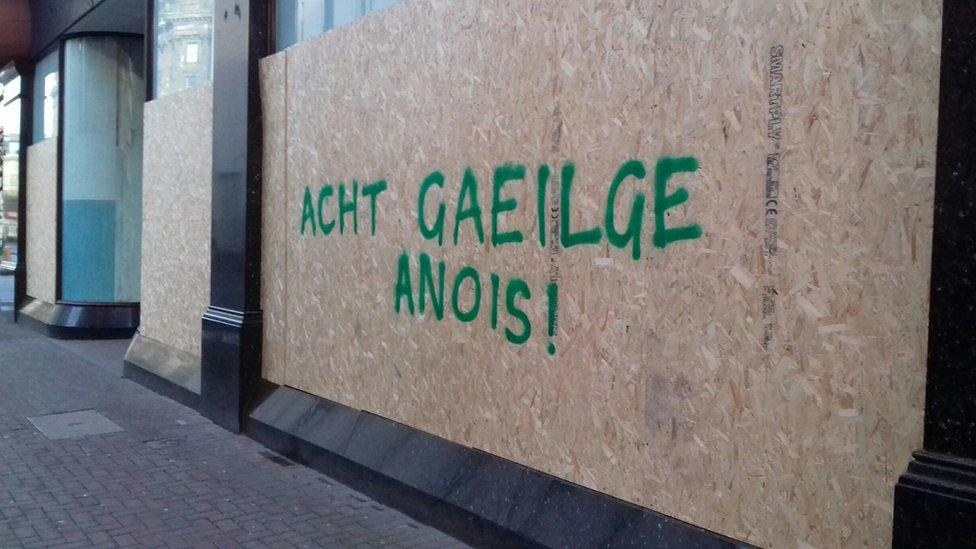
- Published27 June 2017
- Published12 May 2017
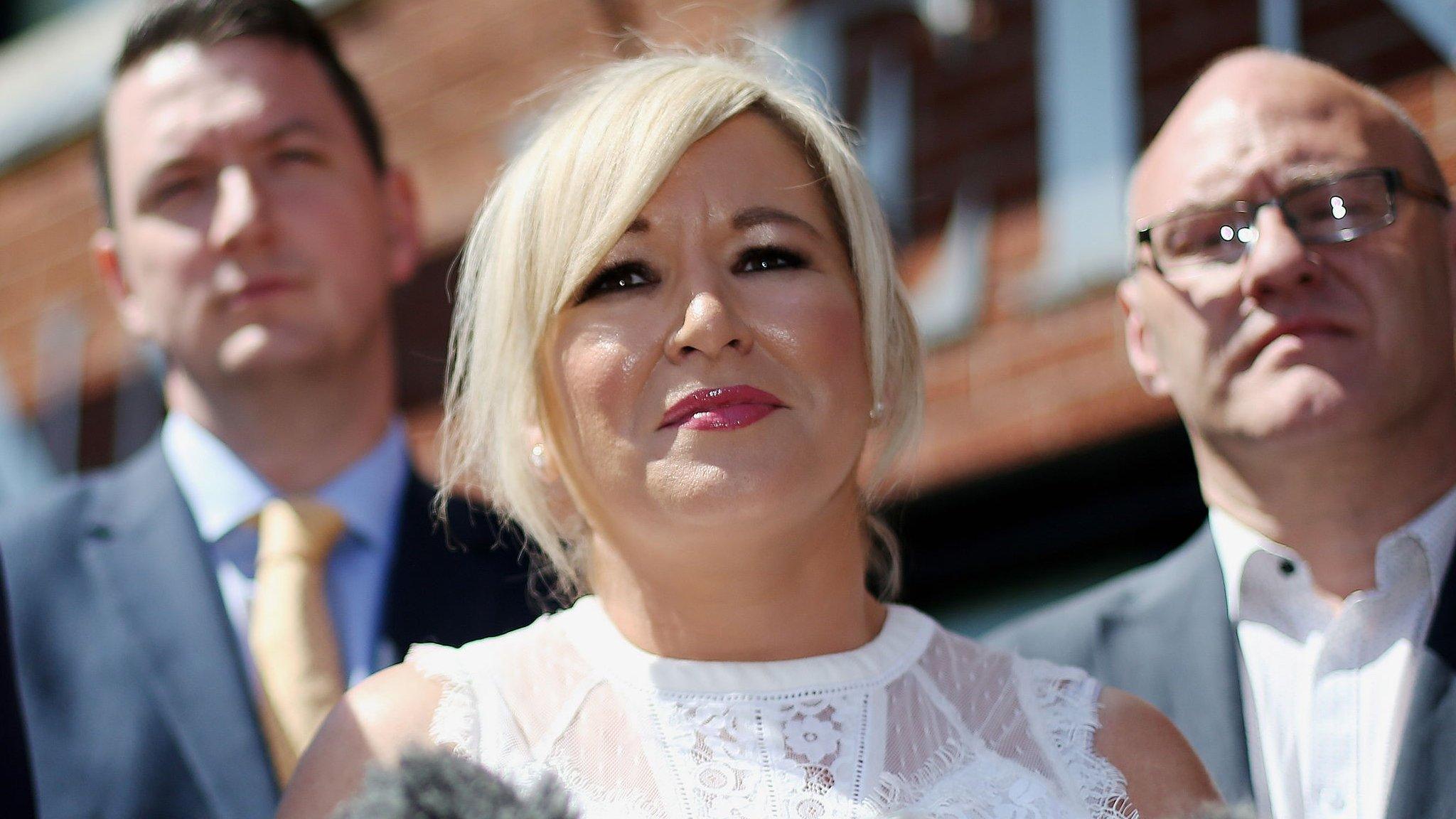
- Published9 March 2017
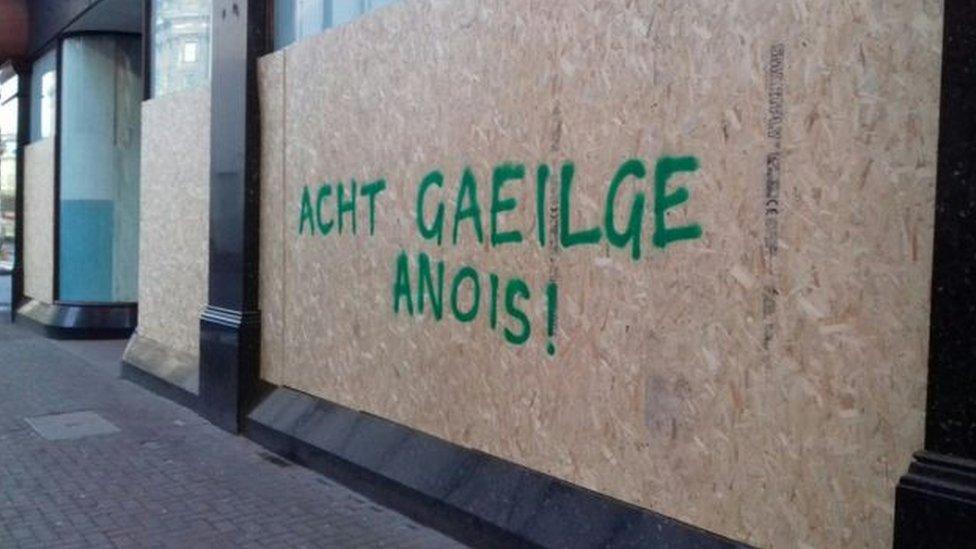
- Published28 June 2017
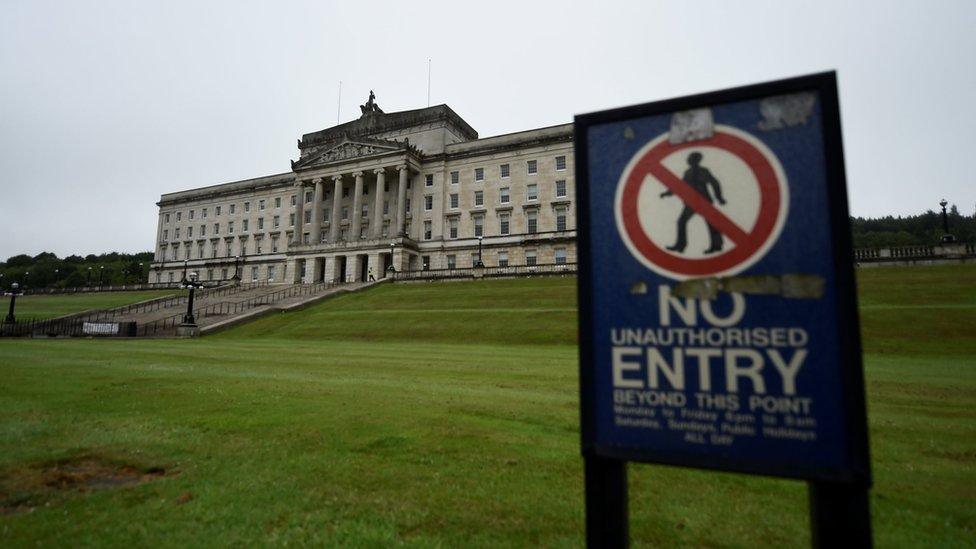
- Published10 June 2013
